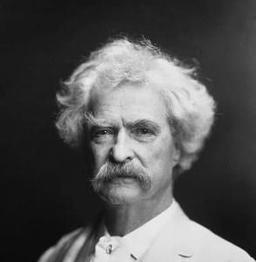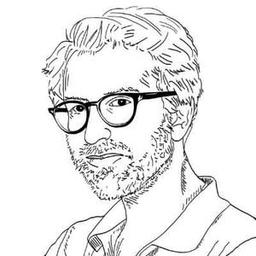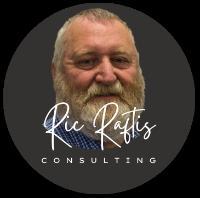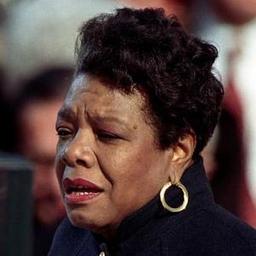109 Quotes
"There are essentially three ways for a product manager to work, and I argue only one of them leads to success:"
— Marty Cagan
Behind Every Great Product - Silicon Valley Product Group"They can escalate every issue and decision up to the CEO. In this model, the product manager is really abacklog administrator. Lots of CEO’s tell me this is the model they’re in and it’s not working."
— Marty Cagan
Behind Every Great Product - Silicon Valley Product Group"The product manager can do his or her job."
— Marty Cagan
Behind Every Great Product - Silicon Valley Product Group"They can call a meeting with all the stakeholders in the room and then just let them fight it out – this is design by committee and it rarely yields anything beyond mediocrity."
— Marty Cagan
Behind Every Great Product - Silicon Valley Product Group"The team quickly learned that while it may be a worthwhile objective to get to a common code base, it’s an empty victory if the product that results is not good."
— Marty Cagan
Behind Every Great Product - Silicon Valley Product Group"Moreover, users choose their devices and platforms because they value what’s different, not the same."
— Marty Cagan
Behind Every Great Product - Silicon Valley Product Group"From the customer’s point of view, they would rather wait a little longer and have a better platform-specific solution, than simultaneously ship a generic product on all platforms."
— Marty Cagan
Behind Every Great Product - Silicon Valley Product Group"They looked at things like when and how to load fonts since Mac users tended to have so many more than Windows users, and ensuring all Mac keyboard shortcuts still worked."
— Marty Cagan
Behind Every Great Product - Silicon Valley Product Group"People would rent once, and then quickly forget about the service, and didn’t seem very willing to change. The team knew that the service wasn’t better enough to get people to change."
— Marty Cagan
Behind Every Great Product - Silicon Valley Product Group"One of many tests they tried was to move to a subscription service. Get people to sign up for a month, and offer them unlimited movies. Would that be perceived as “better enough” to get them to change their media consumption behavior?"
— Marty Cagan
Behind Every Great Product - Silicon Valley Product Group"So the product challenge became how were they going to make sure Netflix customers could watch a set of movies they would love, yet wouldn’t bankrupt the company?"
— Marty Cagan
Behind Every Great Product - Silicon Valley Product Group"They knew they needed to somehow get customers to want a blend of expensive and less expensive titles. Necessity being the mother of invention, this is where the queue, the ratings system, and the recommendation engine all came from. Those were the technology-powered innovations that enabled the new, much more desirable business model."
— Marty Cagan
Behind Every Great Product - Silicon Valley Product Group"This was also a great example of a product manager needing to work across the entire company to come up with not just product solutions but business solutions that work."
— Marty Cagan
Behind Every Great Product - Silicon Valley Product Group"The core idea had support from Larry Page, but the idea immediately encountered some pretty strong resistance from both the ad sales team, and the engineering team."
— Marty Cagan
Behind Every Great Product - Silicon Valley Product Group"The new sales team, under Omid Kordistani, was off to a strong start selling keywords to large brands and placing the results at the top of the search results, highlighted as an ad, but still very prominent, much in the style that had been done in search results at other companies, including at Netscape where Omid came from. Sales was nervous that this idea of a self-service advertising platform would diminish the value of what the sales team was trying to sell."
— Marty Cagan
Behind Every Great Product - Silicon Valley Product Group"And the engineers, which had been working so hard to provide highly relevant search results, were undersandably very worried that users would be confused and frustrated by ads getting in the way of their search results."
— Marty Cagan
Behind Every Great Product - Silicon Valley Product Group"Once Jane understood the constraints and concerns she was able to advocate for a solution that she believed would address the issues yet enable countless small businesses to get a much more effective advertising solution."
— Marty Cagan
Behind Every Great Product - Silicon Valley Product Group"This is yet another example of how there are always so many good reasons for products not to get built. In the products that succeed, there is always someone like Jane behind the scenes working to get over each and every one of the objections, be they technical or business or anything else."
— Marty Cagan
Behind Every Great Product - Silicon Valley Product Group"One such early possibility she found were city center venues that had these large electronic billboard screens that were capable of video. But she observed that these venues were just playing the same thing you could watch on your television at home, even though the context and audience was very different."
— Marty Cagan
Behind Every Great Product - Silicon Valley Product Group"So Alex proposed a series of experiments where she would have editorial teams assemble specific tailored content suitable for specific venues and audiences, and then she would measure the audience reach and engagement."
— Marty Cagan
Behind Every Great Product - Silicon Valley Product Group"This work ended up fueling a dramatic shift at the BBC from broadcast content to content distribution, and this work dramatically impacted reach, and soon became the basis for BBC’s Mobile efforts. Today more than 50 million people around the world depend on BBC’s mobile offering every week."
— Marty Cagan
Behind Every Great Product - Silicon Valley Product Group"especially as she was there during the years moving from the iTunes original DRM-based music, to DRM-free, was critical in helping iTunes to become truly mass market."
— Marty Cagan
Behind Every Great Product - Silicon Valley Product Group"Moving beyond early adopters into mass market involved many different efforts, some product, some marketing, and some a blend of the two. A good example of this blend was the relationship the iTunes team engaged with the American Idol program."
— Marty Cagan
Behind Every Great Product - Silicon Valley Product Group"Apple saw in this an opportunity to expose an ideal target market to the power of iTunes and digital music. Not just by selling the music from the contestants featured on the show, but by making iTunes an integral part of consumer’s life."
— Marty Cagan
Behind Every Great Product - Silicon Valley Product Group"The integration also allowed the team to target a very specific persona, and work to drive up engagement with this group. One of the keys was to make it easy to get to iTunes for those that didn’t yet have the app installed."
— Marty Cagan
Behind Every Great Product - Silicon Valley Product Group"One of the absolute hardest assignments in our industry is to try to cause dramatic change in a large and successful company. It’s actually easier in many ways if the company is in serious trouble and they are feeling big pain, because that pain can be used to motivate the change."
— Marty Cagan
Behind Every Great Product - Silicon Valley Product Group"She had helped Adobe to build a very large and successful business for itself – on the order of $2B in annual license revenue – with its desktop–based Creative Suite."
— Marty Cagan
Behind Every Great Product - Silicon Valley Product Group"But Lea knew the market was changing, and the company needed to move from the old desktop-centric, annual upgrade model, to a subscription-based model supporting all the devices designers were now using – including tablets and mobile in all their many form factors."
— Marty Cagan
Behind Every Great Product - Silicon Valley Product Group"With over a million customers of the existing Creative Suite, Lea understood the technology adoption curve, and that there would be a segment of the customer base that would strongly resist a change of this magnitude. Lea understood that it’s not just about whether the new Creative Cloud would be “better,” it would also be different in some meaningful ways, and some people would need more time to digest this change than others."
— Marty Cagan
Behind Every Great Product - Silicon Valley Product Group"Lea knew she had a tough job in front of her and her teams. She realized that in order for all of these inter-related pieces to be able to move together in parallel, she needed to very clearly articulate a compelling vision of the new whole as greater than the sum of the parts."
— Marty Cagan
Behind Every Great Product - Silicon Valley Product Group"It is easy to see how big companies with lots of revenue at risk would hesitate to make the changes they need to not only survive, but thrive. Lea tackled these concerns and more head on with a clear and compelling vision and strategy, and clear and continuous communication to the many stakeholders."
— Marty Cagan
Behind Every Great Product - Silicon Valley Product Group"Product Management is absolutely distinct from the other disciplines."
— Marty Cagan
Behind Every Great Product - Silicon Valley Product Group"The role I would argue that the product manager is most similar to is the role of the CEO. But with the obvious difference that unlike the CEO, nobody reports to the product manager."
— Marty Cagan
Behind Every Great Product - Silicon Valley Product Group"Like a CEO, the Product Manager must deeply understand all aspects of the business. The Product Manager needs to ensure a business outcome, not just ensure a product gets defined."
— Marty Cagan
Behind Every Great Product - Silicon Valley Product Group"I hoped you noticed that in literally every one of these examples, the winning solutions didn’t come from users or sales; rather great products require an intense collaboration with design and engineering to solve real problems for our users and customers, in ways that meet the needs of your business."
— Marty Cagan
Behind Every Great Product - Silicon Valley Product Group"Like a successful CEO, the successful product manager must be the very best versions of smart, creative and persistent."
— Marty Cagan
Behind Every Great Product - Silicon Valley Product Group"By smart I mean using new technologies to reach new audiences or enable new business models."
— Marty Cagan
Behind Every Great Product - Silicon Valley Product Group"By creative, I mean thinking outside the normal product box of features to solve business problems."
— Marty Cagan
Behind Every Great Product - Silicon Valley Product Group"And persistent — as in pushing companies way beyond their comfort zone with compelling evidence, constant communication and building bridges across functions in the face of stubborn resistance. Being a great product manager means having extraordinary grit."
— Marty Cagan
Behind Every Great Product - Silicon Valley Product Group"Finally, I hope you can see that true leadership is a big part of what separates the great product people from the merely good ones. So no matter your title or level, if you aspire to be great, don’t be afraid to lead."
— Marty Cagan
Behind Every Great Product - Silicon Valley Product Group"Product = Customer x Business x Technology"
— Marty Cagan
What is a Product? - Silicon Valley Product Group"addressing usability risk is part of solving for the customer; addressing feasibility risk is part of solving for the technology; and addressing business viability risk is part of solving for the business. And value risk is a function of all three."
— Marty Cagan
What is a Product? - Silicon Valley Product Group"I constantly meet startup founders and product managers that think it’s all about the business model. They bring me a business model canvas that’s all filled in (but unvalidated) that shows a beautiful business that’s sure to make a ton of money."
— Marty Cagan
What is a Product? - Silicon Valley Product Group"I also meet far too many designers, and even some design leaders (and more than a few product managers), that think product is all about the user experience. They believe that if they just make their customers happy they’ll be successful. If only it were that easy. They don’t even pretend to be concerned about the economics or other business considerations – revenue, costs, sales, marketing, legal, privacy, etc."
— Marty Cagan
What is a Product? - Silicon Valley Product Group"It’s absolutely critical that your company’s leaders in product management, user experience design, and engineering all have a deep understanding of this fundamental equation of product, and they need to actively coach their product managers, designers and engineers on this as well."
— Marty Cagan
What is a Product? - Silicon Valley Product Group"If the CEO of your company gets it in his or her head that one or more of your product managers has no real understanding of how the business really works, then that person has little hope of being trusted and empowered."
— Marty Cagan
What is a Product? - Silicon Valley Product Group"Product Management is not defining the business case"
— Marty Cagan
What Product Management Is Not - Silicon Valley Product Group"But this doesn’t really do anything to contribute to actually creating the product"
— Marty Cagan
What Product Management Is Not - Silicon Valley Product Group"Product Management is not defining market requirements"
— Marty Cagan
What Product Management Is Not - Silicon Valley Product Group"The first is the fallacy of so-called “market requirements.” Markets don’t have requirements. People do. And the person that’s actually going to be defining this product has got to talk to these people directly."
— Marty Cagan
What Product Management Is Not - Silicon Valley Product Group"If the engineer is the one defining the product, then that person is the true product manager"
— Marty Cagan
What Product Management Is Not - Silicon Valley Product Group"The second issue is the fallacy of market requirements separate from product requirements. The whole idea is to discover a product-market fit and this requires a deep understanding of both the market needs and the technology’s capabilities. It is during the discovery process that you identify true market requirements and technical solutions that successfully address these requirements."
— Marty Cagan
What Product Management Is Not - Silicon Valley Product Group"– Product Management is not requirements gathering"
— Marty Cagan
What Product Management Is Not - Silicon Valley Product Group"True product companies know that customers have issues that need to be addressed, but they are not in a position to dictate the product requirements."
— Marty Cagan
What Product Management Is Not - Silicon Valley Product Group"– Product Management is not project management"
— Marty Cagan
What Product Management Is Not - Silicon Valley Product Group"But the discovery process is not simply a task in a project plan. It is its own process, which is very different than the product development process."
— Marty Cagan
What Product Management Is Not - Silicon Valley Product Group"– Product Management is not product marketing"
— Marty Cagan
What Product Management Is Not - Silicon Valley Product Group"Finally, product management is not about pricing, promotions, positioning and messaging, or product launch activities. Nor is it about online marketing and customer acquisition strategies or influencer marketing programs."
— Marty Cagan
What Product Management Is Not - Silicon Valley Product Group"While the company might be tempted to ask the product manager to cover these responsibilities as well, realize that the nature of these marketing-based activities is dramatically different than the discovery-based activities, and it’s very hard to find people that are skilled at both."
— Marty Cagan
What Product Management Is Not - Silicon Valley Product Group"In contrast to the above, the product manager is responsible for discovering a product that is useful, usable and feasible."
— Marty Cagan
What Product Management Is Not - Silicon Valley Product Group"I spend far too much time trying to get people to unlearn what they think they know about product management, so that they can have a chance to learn how strong product managers do their job."
— Marty Cagan
Product Management - Start Here - Silicon Valley Product Group"Where do great products come from?"
— Marty Cagan
Product Management - Start Here - Silicon Valley Product Group"Great products solve real problems for our users and customers, in ways that our customers love, yet work for our business."
— Marty Cagan
Product Management - Start Here - Silicon Valley Product Group"There are four big risks in every technology product effort. You need to understand and be concerned with all four, but two of them are the explicit responsibility of the product manager."
— Marty Cagan
Product Management - Start Here - Silicon Valley Product Group"As product manager, you’re responsible for ensuring that what gets built is both valuable and viable."
— Marty Cagan
Product Management - Start Here - Silicon Valley Product Group"What is product discovery and why is it important?"
— Marty Cagan
Product Management - Start Here - Silicon Valley Product Group"a solution that’s valuable, usable, feasible and viable."
— Marty Cagan
Product Management - Start Here - Silicon Valley Product Group"it’s important to understand that feature teams deliver output, but product teams deliver outcomes."
— Marty Cagan
Product Management - Start Here - Silicon Valley Product Group"To set your expectations, it usually takes about three months of real work for a new product manager to get to a basic level of competence. And that’s if you have a strong foundation and an experienced manager coaching you at least weekly."
— Marty Cagan
Product Management - Start Here - Silicon Valley Product Group"What’s the most important thing for me to understand if I want my product team to be great?"
— Marty Cagan
Product Management - Start Here - Silicon Valley Product Group"First, you absolutely need to do your homework as I described above. Your team is depending on you. Beyond that, develop a true understanding and appreciation for the role of design and especially the role of engineering in technology-powered products."
— Marty Cagan
Product Management - Start Here - Silicon Valley Product Group"In the tech world, there are really three distinct types of, loosely speaking, “product teams.”"
— Marty Cagan
Product vs. Feature Teams - Silicon Valley Product Group"The most common in terms of sheer numbers are not really product teams at all, they are delivery teams. Also referred to as “dev teams” or “scrum teams” or “engineering teams” and if your company is running something like SAFe, then unfortunately this is you."
— Marty Cagan
Product vs. Feature Teams - Silicon Valley Product Group"When I wrote about the virtues of empowered product teams, I was referring to what I’ll continue to call here as product teams. Specifically, they are cross-functional (product, design and engineering); they are focused on and measured by outcomes (rather than output); and they are empowered to figure out the best way to solve the problems they’ve been asked to solve."
— Marty Cagan
Product vs. Feature Teams - Silicon Valley Product Group"Much more often than not, the teams are not empowered at all."
— Marty Cagan
Product vs. Feature Teams - Silicon Valley Product Group"In this article, I will refer to this third class of teams as feature teams."
— Marty Cagan
Product vs. Feature Teams - Silicon Valley Product Group"Recall that in product there are always four risks:"
— Marty Cagan
Product vs. Feature Teams - Silicon Valley Product Group"It’s worth pointing out that even though the stakeholder is the one implicitly responsible for value and viability, they will still find a way to blame you and your team if their hoped-for results are not realized."
— Marty Cagan
Product vs. Feature Teams - Silicon Valley Product Group"In an empowered product team, where the product manager needs to ensure value and viability, deep knowledge of the customer, the data, the industry and especially your business (sales, marketing, finance, support, legal, etc.) is absolutely non-negotiable and essential."
— Marty Cagan
Product vs. Feature Teams - Silicon Valley Product Group"Yet in a feature team, that knowledge is (at best) dispersed among the stakeholders."
— Marty Cagan
Product vs. Feature Teams - Silicon Valley Product Group"The job of the product manager on a feature team is most commonly described as a form of facilitator, “herding the cats” in order to get the feature designed and delivered, or some nebulous and weak form of cross-functional leader that’s not really responsible for anything specific."
— Marty Cagan
Product vs. Feature Teams - Silicon Valley Product Group"I can tell you that with few exceptions, the best product teams at the best companies are all about the empowered product team model."
— Marty Cagan
Product vs. Feature Teams - Silicon Valley Product Group"here are some tests you can apply to your team:"
— Marty Cagan
Product vs. Feature Teams - Silicon Valley Product Group"Is there role confusion between you and your designer?"
— Marty Cagan
Product vs. Feature Teams - Silicon Valley Product Group"John Doerr, where he argues that “we need teams of missionaries, not teams of mercenaries.”"
— Marty Cagan
Missionaries vs. Mercenaries - Silicon Valley Product Group"This point captures so much, and gets right to the heart of the most important trait of strong leaders, strong organizations, and strong product teams."
— Marty Cagan
Missionaries vs. Mercenaries - Silicon Valley Product Group"Teams of missionaries are engaged, motivated, have a deep understanding of the business context, and tangible empathy for the customer."
— Marty Cagan
Missionaries vs. Mercenaries - Silicon Valley Product Group"Teams of mercenaries feel no real sense of empowerment or accountability, no passion for the problem to be solved, and little real connection with the actual users and customers."
— Marty Cagan
Missionaries vs. Mercenaries - Silicon Valley Product Group"1. Leadership. So many executives and stakeholders think they know the answers, and they really don’t even want to discuss or debate it."
— Marty Cagan
Missionaries vs. Mercenaries - Silicon Valley Product Group"2. Staffing. Some leaders absolutely get the importance of a team of missionaries, but they have inherited an organization that is staffed by people that are resigned to the mercenary model. A variation of this is when the organization has significant outsourcing of the designers or engineers that are on the teams."
— Marty Cagan
Missionaries vs. Mercenaries - Silicon Valley Product Group"3. Process. Several product development processes out there, especially those that claim to be designed for “the enterprise,” are predicated on the mercenary model. Now none of them would ever describe themselves that way, but that’s very much what I argue is going on."
— Marty Cagan
Missionaries vs. Mercenaries - Silicon Valley Product Group"The three issues above are not mutually exclusive. In fact, over time one usually leads to the others."
— Marty Cagan
Missionaries vs. Mercenaries - Silicon Valley Product Group"First, we need to educate the leadership team."
— Marty Cagan
Missionaries vs. Mercenaries - Silicon Valley Product Group"Second, we need to raise the bar on the staff – starting with product managers but also product designers and at least the senior engineers / tech leads."
— Marty Cagan
Missionaries vs. Mercenaries - Silicon Valley Product Group"Finally, it’s about adopting the processes and techniques that allow teams to show what they can do. There’s quite a bit here but it starts with a compelling product vision combined with business outcomes (objectives with measurable key results) for the organization and for each product team."
— Marty Cagan
Missionaries vs. Mercenaries - Silicon Valley Product Group"The purpose of the MRD is to describe the opportunity, not the solution."
— Marty Cagan
Assessing Product Opportunities | Silicon Valley Product Group"The purpose of a good product opportunity assessment is either to a) prevent the company from wasting time and money on poor opportunities; or b) for those that are good opportunities, to understand what will be required to succeed."
— Marty Cagan
Assessing Product Opportunities | Silicon Valley Product Group"I ask product managers to answer ten fundamental questions:"
— Marty Cagan
Assessing Product Opportunities | Silicon Valley Product Group"1. Exactly what problem will this solve? (value proposition)"
— Marty Cagan
Assessing Product Opportunities | Silicon Valley Product Group"2. For whom do we solve that problem? (target market)"
— Marty Cagan
Assessing Product Opportunities | Silicon Valley Product Group"3. How big is the opportunity? (market size)"
— Marty Cagan
Assessing Product Opportunities | Silicon Valley Product Group"4. What alternatives are out there? (competitive landscape)"
— Marty Cagan
Assessing Product Opportunities | Silicon Valley Product Group"5. Why are we best suited to pursue this? (our differentiator)"
— Marty Cagan
Assessing Product Opportunities | Silicon Valley Product Group"6. Why now? (market window)"
— Marty Cagan
Assessing Product Opportunities | Silicon Valley Product Group"7. How will we get this product to market? (go-to-market strategy)"
— Marty Cagan
Assessing Product Opportunities | Silicon Valley Product Group"8. How will we measure success/make money from this product? (metrics/revenue strategy)"
— Marty Cagan
Assessing Product Opportunities | Silicon Valley Product Group"9. What factors are critical to success? (solution requirements)"
— Marty Cagan
Assessing Product Opportunities | Silicon Valley Product Group"10. Given the above, what’s the recommendation? (go or no-go)"
— Marty Cagan
Assessing Product Opportunities | Silicon Valley Product Group"The solution requirements refer to any special needs or requirements that were identified during the investigation"
— Marty Cagan
Assessing Product Opportunities | Silicon Valley Product GroupExplore More Quotes 📚
Want to Save Quotes?
Glasp is a social web highlighter that people can highlight and organize quotes and thoughts from the web, and access other like-minded people’s learning.

















